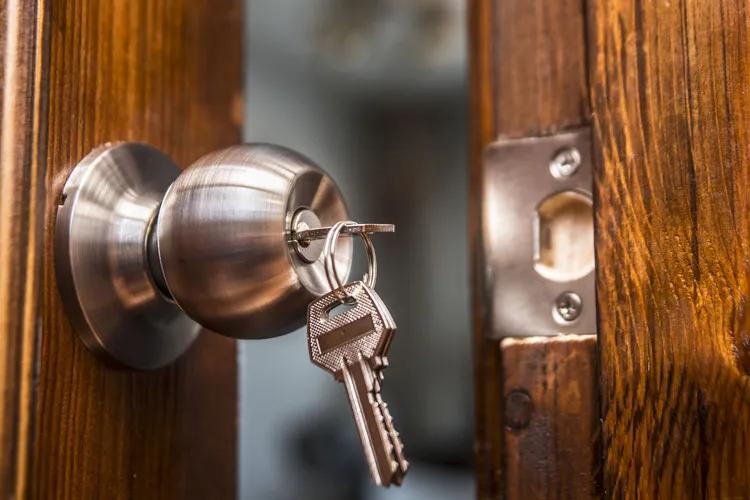What Does It Mean to Rekey a Lock

Locks play a crucial role in securing homes, offices, and commercial spaces. Over time, situations may arise where you need to change your locks for security reasons. However, replacing an entire lock system can be costly and unnecessary in many cases. This is where rekeying a lock becomes a viable and cost-effective solution. But what does it mean to rekey a lock? Let's explore the concept, process, benefits, and scenarios where rekeying is the best option.
Understanding Rekeying a Lock
Rekeying a lock means changing the internal mechanism of the lock so that the existing key will no longer work. Instead of replacing the entire lock, a locksmith modifies the pins and tumblers inside the lock cylinder to match a new key. This process ensures that previous keys cannot open the lock, providing enhanced security without requiring complete lock replacement.
The Rekeying Process
Rekeying a lock is a technical process that requires expertise. Here’s how it typically works:
Removing the Lock Cylinder – A locksmith will first remove the lock from the door and extract the cylinder where the key is inserted.
Extracting the Old Pins – Inside the lock cylinder, there are a series of small pins that match the grooves of the existing key. The locksmith removes these pins to reset the lock.
Inserting New Pins – The locksmith then inserts new pins that align with a new key. These new pins are arranged in a specific configuration so that only the new key will work.
Reassembling the Lock – Once the new pins are in place, the locksmith reassembles the lock and reinstalls it onto the door.
Testing the New Key – Finally, the locksmith tests the new key to ensure it functions correctly and that the old key no longer works.
This entire process is typically quicker and more affordable than completely replacing the lock.
Benefits of Rekeying a Lock
Rekeying a lock offers several advantages, making it a preferred choice in many situations:
Enhanced Security – Rekeying ensures that old keys will no longer work, preventing unauthorized access from previous key holders.
Cost-Effective – Compared to replacing an entire lock, rekeying is significantly more affordable as it requires only minor adjustments to the lock mechanism.
Quick and Convenient – Rekeying is a relatively quick process that can be done within minutes by a professional locksmith.
Key Control – If you’ve misplaced a key or given one to someone who no longer needs access, rekeying allows you to maintain better control over who can enter your property.
Standardized Key System – If you have multiple locks that use different keys, a locksmith can rekey them to work with a single master key, reducing the number of keys you need to carry.
Read More: Rekeying Vs Changing Locks: Which One Should You Choose?
When Should You Rekey a Lock?
There are several scenarios where rekeying a lock is the best course of action:
Moving into a New Home – You never know how many people may have copies of the existing keys, so rekeying is a good precaution.
Lost or Stolen Keys – If your keys are lost or stolen, rekeying ensures that whoever finds them won’t be able to access your property.
Tenant or Employee Turnover – If you own rental properties or manage an office, rekeying the locks when tenants or employees leave helps maintain security.
Break-Ins or Attempted Burglary – If someone attempts to tamper with your locks, rekeying can restore security without replacing all locks.
Upgrading to a Master Key System – If you want one key to operate multiple locks, rekeying can help establish a master key system for ease of access.
Can You Rekey a Lock Yourself?
While rekeying a lock is possible as a DIY project, it requires specialized tools and knowledge. Many hardware stores sell rekeying kits for specific lock brands, but improper handling can damage the lock. To ensure a smooth and effective rekeying process, it’s often best to hire a professional locksmith.
Rekeying vs. Changing Locks: Which One Is Better?
The choice between rekeying and replacing locks depends on the situation:
Rekeying is ideal when you need to restrict access but keep the existing lock hardware.
Changing the lock is necessary if the lock is old, damaged, or you want to upgrade to a more secure system, such as smart locks or high-security deadbolts.
Conclusion
Rekeying a lock is a smart, affordable, and effective way to enhance security without the expense of replacing the entire lock. Whether you've just moved into a new home, lost a key, or need to restrict access to previous keyholders, rekeying provides a practical solution. By consulting a professional locksmith near you, you can ensure the job is done correctly, giving you peace of mind and enhanced security. Instead of opting for a full lock replacement, rekeying is a cost-effective way to maintain control over your property's safety. If you're looking for reliable locksmith services near me, a trusted expert can help you safeguard your home or business efficiently.
Post Your Ad Here
Comments